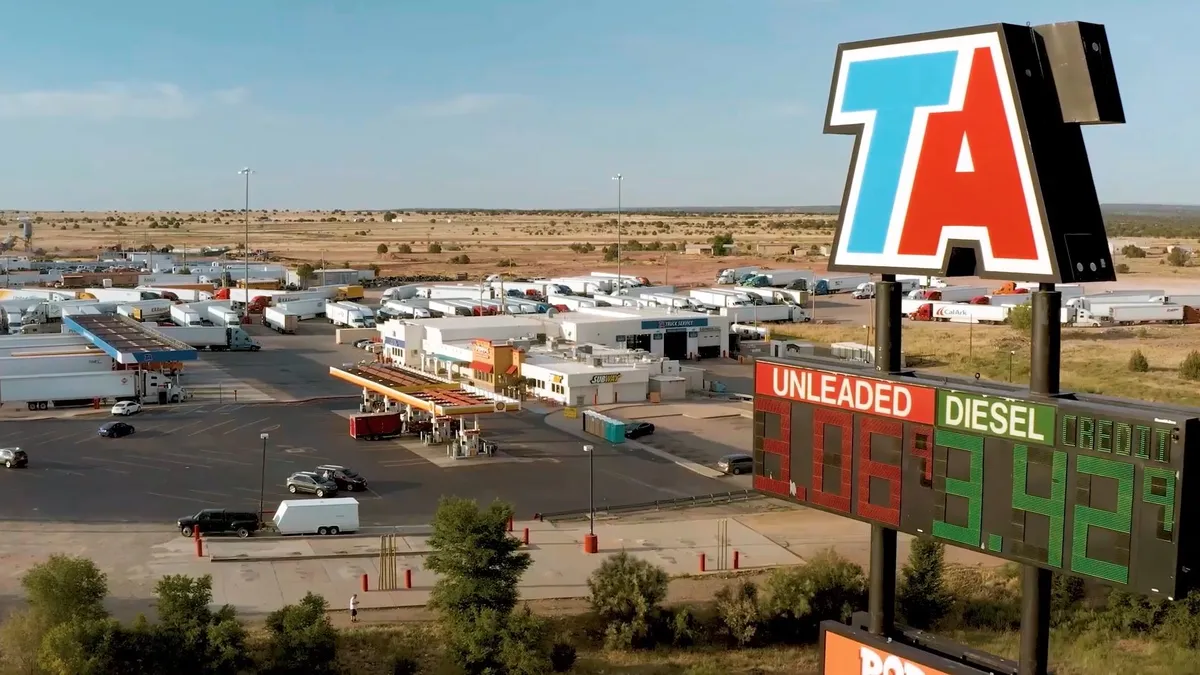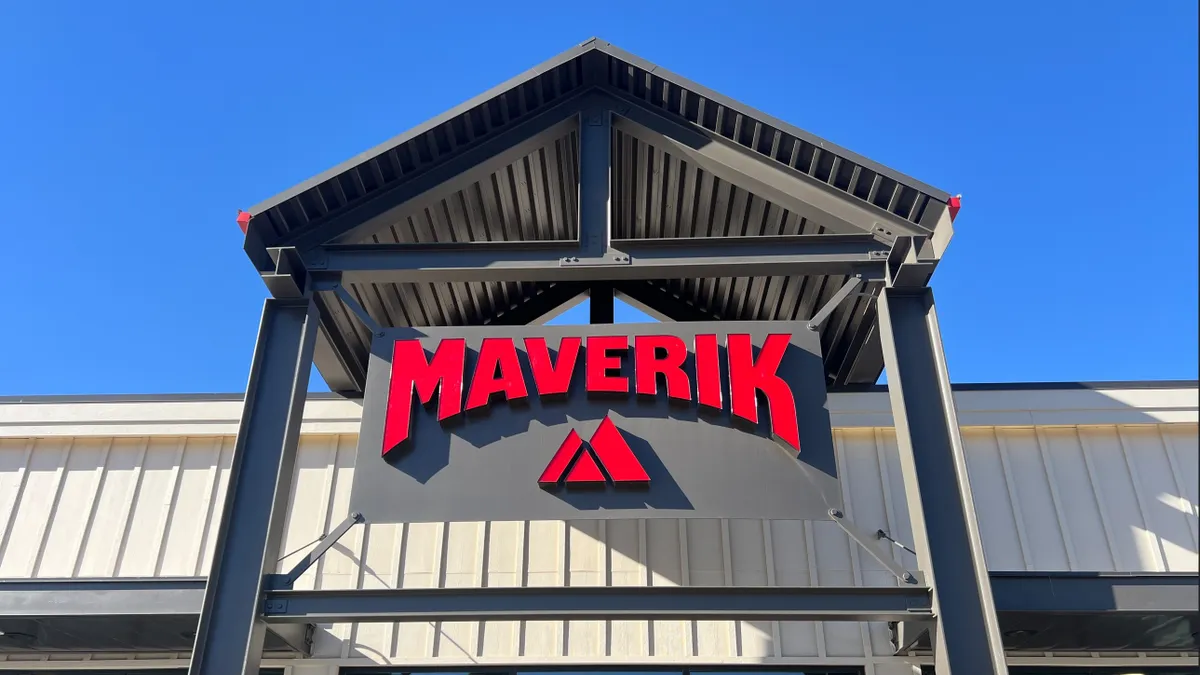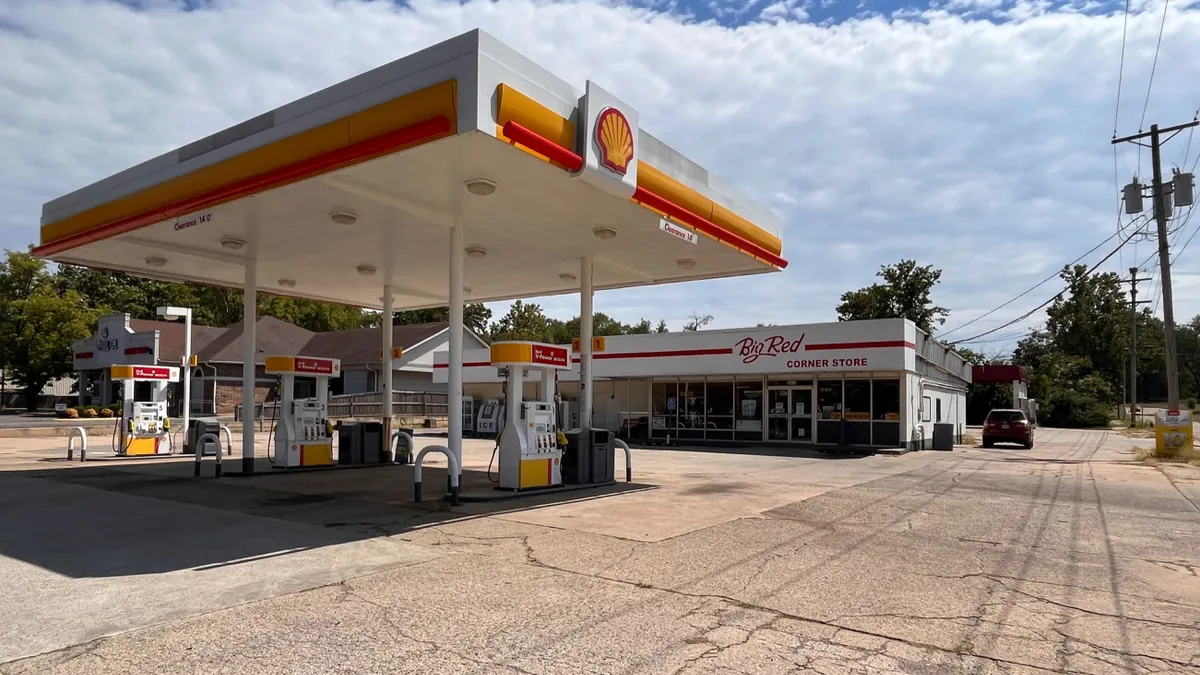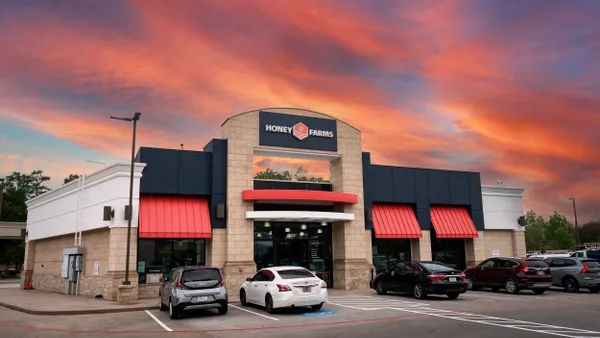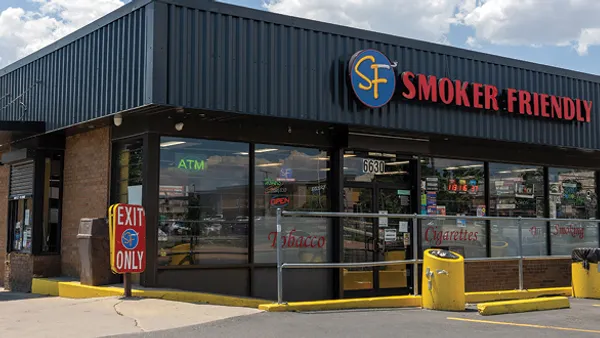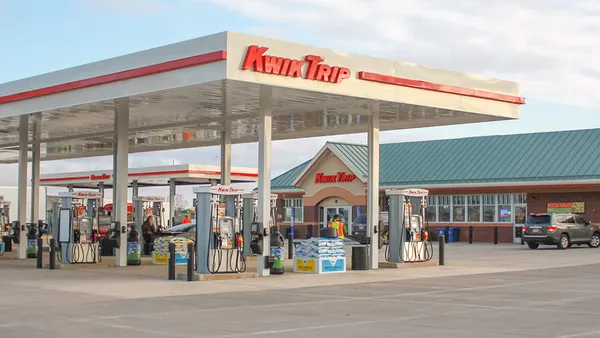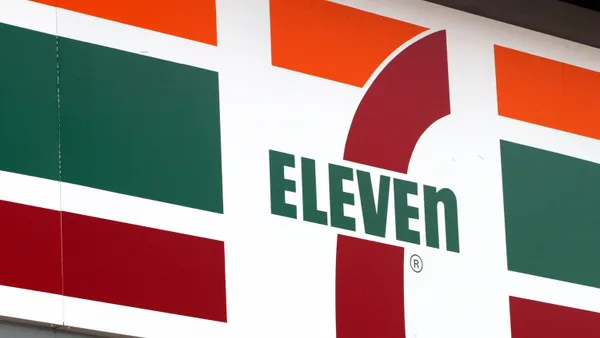Dive Brief:
- BP reported record gross margins in its convenience segment, with growth of about 7% year-over-year in the metric for the second quarter, excluding any gains or losses from its May acquisition of TravelCenters of America (TA), CEO Bernard Looney said during the company’s earnings call on Monday.
- Once TA is fully integrated, Looney also said it “is expected to almost double BP's global convenience gross margin and bring growth opportunities in four of our five transition growth engines.”
- Elsewhere, BP saw a 70% increase in the number of EV chargers in its network globally, Looney said, and has turned its attention toward building out its U.S. infrastructure.
Dive Insight:
BP has big expectations for its convenience and EV charging businesses in the next couple years. By 2025, it sees convenience pulling in earnings before interest, taxes, depreciation and amortization (EBITDA) of $1.5 billion — with TA bringing in $800 million all on its own, mostly from convenience.
“We also expect to further expand our network of strategic convenience sites, reaching around 3,000 by 2025 from around 2,750 today,” said Murray Auchincloss, BP’s CFO, during the call. It was not clear how many of those charging sites might be in the U.S.
As far as EV charging, the company has seen success overseas, with two of its top markets — China and Germany – already EBITDA positive, Looney said.
However, EV charging is not as strong in the U.S., which Looney described as an “emerging” market. BP acquired TravelCenters of America in part to get real estate in well-traveled areas across much of the country for uses like this.
“It really is phenomenal to look at,” said Looney. “Because you see the extensive highway network in America. And now we have dots and sites on virtually every one of them in 44 states.”
The company had already earmarked $1 billion for U.S. EV charging expansion, and Looney noted in the earnings call that it has approved $500 million of that to be used over the next two to three years.
“We'll take advantage of the TA network, of course, and start putting chargers down there,” he said.
He also highlighted the company’s investment in Gigahub chargers, which are generally placed at airports and used to charge ride sharing or taxi fleets.
EV charging and convenience are two of the company’s five growth engines, with bioenergy, renewables and hydrogen rounding out the list.
The company noted that it will report capital expenditures and EBITDA for each segment on a biannual basis, and expects EBITDA for these five categories to surpass $3 billion by 2025, with convenience, EV charging and bioenergy contributing the most.
London-based BP owns a variety of convenience brands across the U.S. Besides its own branded stores and those of the Thorntons arm, BP’s umbrella also includes Amoco, Ampm and TravelCenters of America. Its U.S. headquarters are in Houston.



